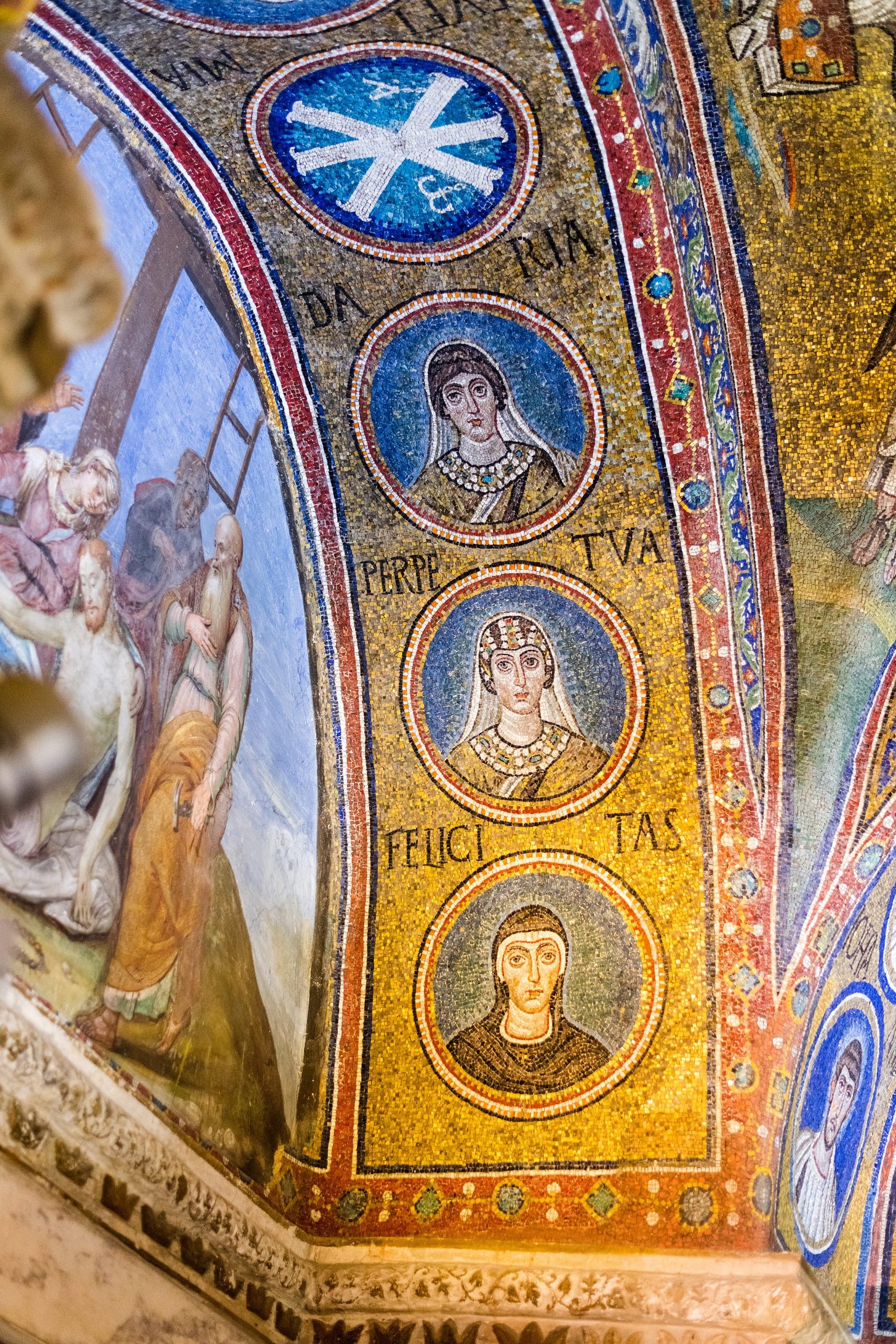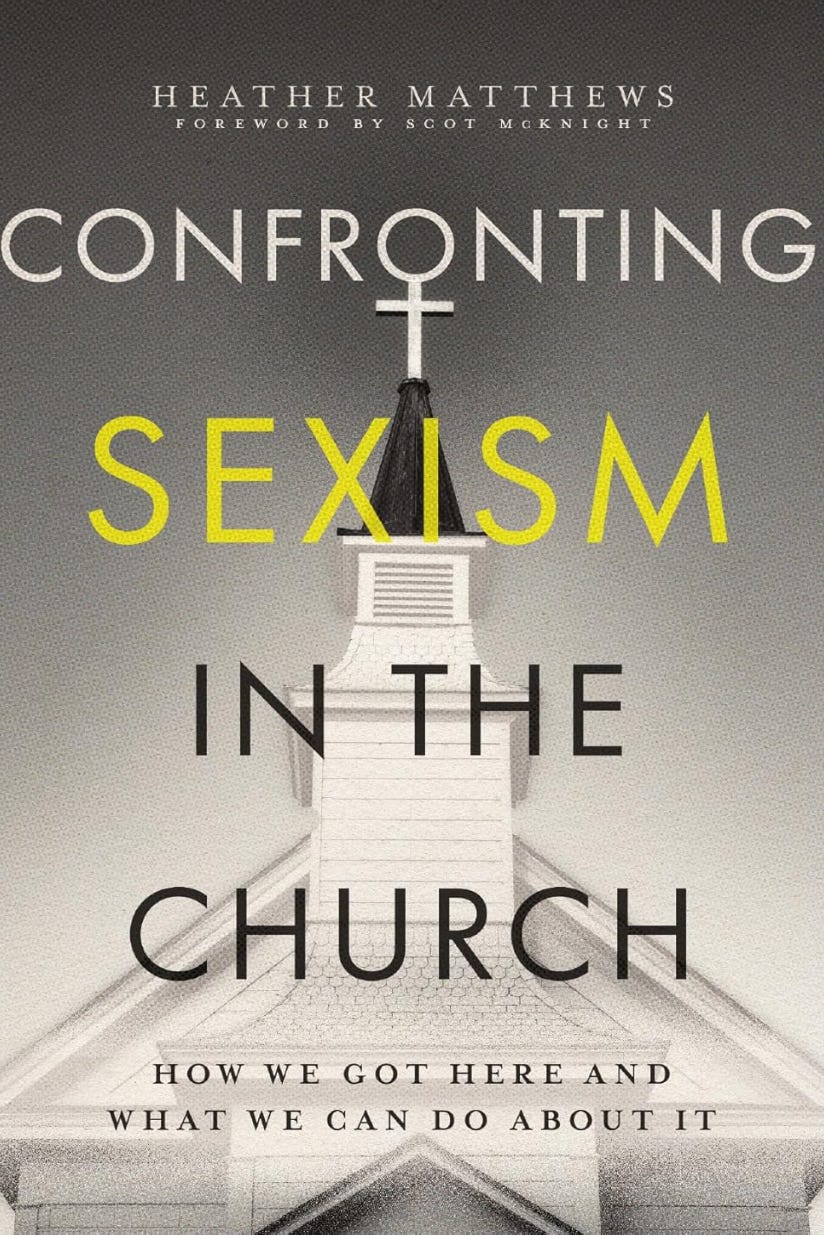By Kelly Dippolito, Executive Director of the Center for Women in Leadership
In chapter 5 of Confronting Sexism in the Church, Heather Matthews storms through over 2,000+ years of history highlighting people who confronted sexism by obeying God and courageously pursuing their callings, including teaching, preaching, and leading.
The sheer breadth of Matthews’ historical survey of antisexism in the church displays her scholarly acumen and deep research. By my count, she mentions 78 women and 10 men by name, in most cases providing biographies that place them within their historical context and summarizes their contribution to the kingdom work of antisexism. While Matthews laments that there “are millions more whose stories still need to be told,” I find it astonishing that a mere 14 pages contain a robust timeline of church history highlighting the work of women who led with conviction and without apology.[1]
I fear that my name doesn’t belong in Matthews’ list of women.
I cannot place myself among giants of the faith who pursued God wholeheartedly, bravely confronting the evil of sexism by fully developing their spiritual gifts.
Rather, my experience in megachurches is punctuated by being appreciated for my prowess with a spreadsheet and an ability to organize people and events, leading from the sidelines rather than the platform. That I also have a gift for teaching became lost in the mix as those clamoring for the platform are many, and the ones chosen are male. Women like me are overlooked in church settings, overused in administrative roles and underdeveloped in teaching positions. We arrange the centerpieces and rock the babies, book the caterer and prep the craft for Sunday’s lesson in kids’ ministry.
I’m not bitter; I’m just a little sad about it.
I’m sad because all of these tasks are kingdom work in which I find joy, and I’m grateful for having been appreciated. Yet the tension remains: Since I am a woman, I was typecast into being a helper, and my skills betrayed me. What was lauded in corporate and nonprofit roles translated into a complementarian gender stereotype. I once thought it was a compliment to be categorized as a “HCV” (high-capacity volunteer), but eventually I realized that it was essentially a list of women being systematically burnt out as unpaid staff. I’m convinced that I am not the only women who has suffered from the brand of sexism that limits their opportunities to serve and minister.
However, there were some along the way who encouraged me to teach. Memories of those kind words leave me overwhelmed by sparks of joy tinged with grief that I didn’t do more to pursue my dream of writing Bible studies decades ago.
So I persist.
Not too long ago I gathered the courage to earn a seminary degree and then embarked on doctoral coursework. Soon I start teaching my thesis at my local church, walking through the metanarrative of Scripture with a focus on mutuality, seeing how women and men were designed to co-rule and co-reign with mutual submission and cooperation. We’ll see both the women and the men in the biblical story, relishing in God’s love and mercy and learning who He is. I hope it goes well. I’m the enthusiastic sort; my audience will not be bored and we’re serving lunch so no one will be grumpy.
This is my lived experience of sexism in the church. Being ready and willing but feeling a sense of not belonging, of intruding into someone else’s role, of feeling like a perpetual rookie.
But forebearers of the faith have gone before me to teach and preach, proclaim and prophesy. That reminder is the great gift Matthews bestows in Confronting Sexism in the Church. When I vigorously encourage women to go to seminary, when I update a well-crafted spreadsheet, when I write my thesis, when look a woman in the eyes and say “I believe in you,” I join in the antisexism work of the 88 women and men Matthews listed because I am leaning into the fullness of my gifts and talents, unencumbered by gender stereotypes.
The people Matthews hailed for their antisexism had a common trait: faithfulness. They persevered when they were rejected and discouraged. They knew the Scriptures and prayed, knowing in their bones that Jesus would be faithful to them.
While space dictates limits on sharing many of the examples provided by Matthews, highlighting four is a worthwhile endeavor.
Junia: I recall the exact moment when my seminary professor casually mentioned that Junia was a female apostle. Excuse me, what?! Her name had gone unmentioned in my church settings and I was taken aback yet there it was in black and white on page 962 in Romans 16:7, “Junias.” Alas, my Bible contained the inaccurate masculine translation, effectively hiding her identity and diminishing her role as an apostle. But now I knew and I wasn’t going back. In her short mention in Scripture, Paul honors her with greetings, recognizing her suffering in prison with him. She undoubtedly bore scars on her female body as a result of her faithfulness and determination. First-century Roman prison conditions were brutal for men and likely even worse for women.
Phoebe: More than a courier or letter deliverer, Phoebe was entrusted by Paul to deliver his hefty letter to the Romans, performing and teaching it on his behalf. Imagine it with me - Phoebe journeyed to Rome with God’s Word in her hands. It occurs to me interpreting Phoebe’s role is an exercise not too dissimilar to my church experience: did she perform an administrative function or did she teach? More importantly, aren’t both kingdom work that should be honored and respected? I argue that Phoebe was multifaceted, capable, and trustworthy to get the job done and to do it well.
Perpetua and Felicitas: Perpetua, an upper-class woman, and Felicitas, a slave girl, were martyred in the arena during the reign of emperor Septima Severus in the third century. Her father begged Perpetua to recant her faith to spare her life and stop the shaming of the family. She refused and suffered in prison while breastfeeding her son, nurturing his life while grappling with her own imminent death.
Felicitas labored to bear a daughter while in prison before she was sent to be devoured by the beasts in the arena. Recanting her faith would have given her an opportunity to be a mother and to simply survive. Yet she remained steadfast, fully devoted to belief in resurrection. She gave the baby to a sister to raise just days before her martyrdom.
Perpetua and Felicitas are examples of strong, faithful women in unimaginably cruel circumstances.[2] Matthews lists them as leaders in the church, rightly highlighting them as our sisters in Christ.
The challenge for us today is how do we foster a legacy of antisexism in the church? We need to notice and address sexism, yes, but Confronting Sexism in the Church taught me that faithfulness is at the core of antisexism in the church. Following Jesus invites us to a life of fulfilling kingdom work and opportunities to encourage each other.
As for me, right now faithfulness looks like tackling a spreadsheet, writing a Bible study, encouraging women to pursue theological education, and supporting women in leadership. There’s good work to do.
Image: Mosaic of Perpetua and Felicitas, St. Andrew Chapel and Archiepiscopal Museum, Ravenna, Italy
Photo credit: Visual Museum of Women in Christianity, visualmuseum.gallery
[1] Heather Matthews, Confronting Sexism in the Church: How We Got Here and What We Can Do About It (InterVarsity, 2024), 75.
[2] See also Lynn H. Cohick and Amy Brown Hughes, “Perpetua and Felicitas: Mothers and Martyrs” in Christian Women in the Patristic World: Their Influence, Authority, and Legacy in the Second through Fifth Centuries (Baker Academic, 2017), 27-64.






So many good things here! But I love this most: “The people Matthews hailed for their antisexism had a common trait: faithfulness. They persevered when they were rejected and discouraged.” Thank you for continuing to show up, Kelly. You are a bright light for all of us. Can’t wait to hear more about your Bible study!
This quote resonated with me so much: “I once thought it was a compliment to be categorized as a “HCV” (high-capacity volunteer), but eventually I realized that it was essentially a list of women being systematically burnt out as unpaid staff.” I’ve known so many women who were stuck in the HCV trap, doing more work than some of the paid staff and more shepherding than the acknowledged shepherds. By God’s grace, may more and more people see the light and bring this system to an end.